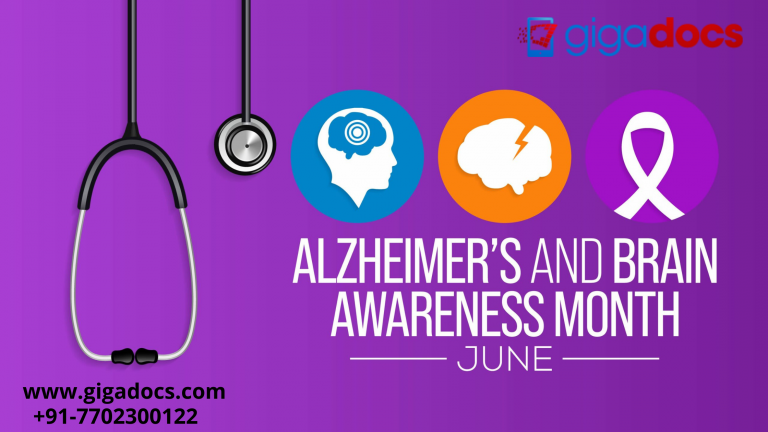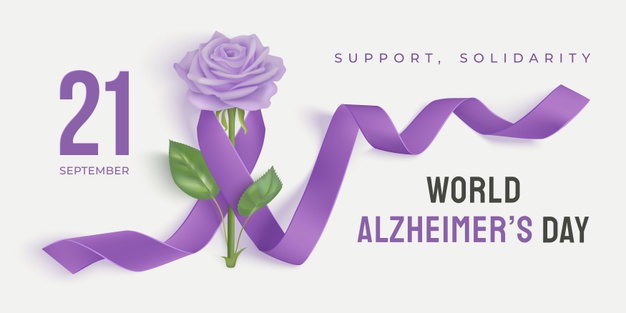Alzheimer’s disease (a type of dementia) damages the brain, resulting in memory loss and cognitive dysfunction impairment. According to research, Alzheimer’s begins 20 years or more before the symptoms appear in the nerve cells (neurons) that have been injured or destroyed. Symptoms start appearing gradually and intensify over time, obstructing an individual’s ability to carry on a conversation, walk or swallow. Alzheimer’s is most common among seniors over 65 years old; however, it can strike anyone younger than 65.
Causes of Alzheimer’s
It is not known why people develop dementia. Multiple factors to the development of this disease may include a combination of genetic, environmental, and factors like old age, family history, lifestyle & health, diabetes, obesity, and depression.
Stages of Alzheimer’s
Symptoms and signs in the early stages of Alzheimer’s dementia can include:
- Getting lost in places where they have been before.
- Having difficulties managing finances and paying bills.
- Taking a longer time to finish routine daily chores.
- Misplacing or losing objects.
- Displaying mood and personality swings.
Alzheimer’s and Brain Awareness Month
June is Alzheimer’s and Brain Awareness Month, which aims to raise awareness for Alzheimer’s and Brain Health and show support for the millions of individuals worldwide who have Alzheimer’s disease or other forms of dementia.
Do you Know?
Every three seconds, someone in the globe develops dementia, with an estimated 50 million people worldwide affected by the latest numbers. Worse, by 2050, this number is predicted to rise to 132 million.
The Functioning of the Brain
Even though our brains account for only about 2% of our total body weight, they have complete control over our organs. For example, the brain is in charge of almost all of our vital functions, such as heartbeat, speaking, eating, physical movement, reasoning, emotions, and breathing. Our brain requires a continuous supply of oxygen and consumes 20% of our blood flow and 20% of the oxygen we breathe.
The brain structure is highly complicated which is directly affected whenever there is a trauma to a specific region in the brain. For example, if a stroke damages the brain stem, swallowing, blood pressure, involuntary movements, and heart rate are all affected. Balance and mobility will be impacted if there is an injury to the cerebellum.
Protecting Your Brain Health
The month of June is designated as Alzheimer’s and Brain Awareness Month to extend support to those afflicted with the disease and their caretakers and encourage greater research into finding a treatment and, eventually, a cure.
The brain controls our motor, emotional, and sensory functions, our cognitive health, which governs our thinking, learning, and memory. We should all take some time to learn about the many roles our brain performs for us and the measures we can take to keep it strong and healthy.
Keep these tips in mind that aim to protect your brain’s health-
- Visit your doctor regularly- For checkups on any chronic health problems that can impair your brain health (such as high blood pressure, high cholesterol, diabetes, and depression).
- Limit your alcohol consumption/Stop smoking: Both smoking and alcohol consumption can have hazardous adverse effects if combined with certain medications.
- Intellectual engagement- Learn new skills, pick up a new interest, or volunteer to stimulate your mind that may improve your cognitive abilities.
- Stay Active- This can help you feel more energized, improve your balance, enhance your mood, and delay or avert chronic health problems.
- Spend time with friends and family-Participate in group social activities to keep your brain engaged and active. Strengthening your interactions with others could be beneficial to your brain.
Food for the Brain
We may adjust our eating habits to boost our general health, which will positively impact our brain health. You can increase your brain health by eating the following foods:
- Vitamin E can be found in various foods, including vegetable oil, seeds, avocado, almonds, and whole grains.
- Antioxidants that help protect the brain neurons, like vitamin A, C, D, E, and K, can be found in brightly colored fruits and vegetables, including blueberries, raspberries, and strawberries.
- Fish that are high in omega-3 fatty acids.
- Dark green leafy vegetables, including kale, spinach, and greens, are good sources of folate and vitamin E.
- Beans and other legumes can aid in maintaining blood sugar balance and provide energy for the brain.
- Caffeine in coffee, tea, and dark chocolate can improve alertness when consumed in moderation.
Alzheimer’s Disease Warning Signs
Memory loss is one of the most common signs of Alzheimer’s disease. Here are the others:
- Confusion – People with Alzheimer’s disease have a hard time keeping track of dates and times.
- Problem Solving – Have trouble concentrating, taking a lot of time to complete tasks.
- Misplacing– Losing or misplacing things and not being able to locate them.
- Withdrawal – They stop participating in hobbies, social activities, work projects, or sports.
- Changes in personality – They may become perplexed, melancholy, afraid, or nervous.
- Judgment or decision-making — They may experience difficulties in judgment or decision-making.
- Talking and Writing – Reading, gauging distance, and determining color are all difficult tasks for people with Alzheimer’s.
Risk with Alzheimer’s
- Many Alzheimer’s patients are unaware that they have the disease: early indicators of dementia include difficulty speaking or finding the proper words during discussions, behavioral changes, and struggle with daily routines, including dressing. However, according to the Alzheimer’s Association, only 45 percent of patients are aware of their diagnosis by their doctors when a health expert notices these symptoms. Failure to inform patients and their caregivers about the diagnosis can prevent seniors from obtaining the therapy they require.
- Debilitating memory loss: Alzheimer’s disease causes slow memory loss, making daily tasks difficult.
Alzheimer’s Brain Health and Gigadocs
If your loved ones have experienced any of the symptoms listed above, consider an expert consultation with a healthcare professional, like a neurologist. Book a neurologist on the Gigadocs app, talk about your clinical history and request prescriptive tests to check whether or not it’s Alzheimer’s onset.
Download the Gigadocs app and consult the best neurologists around you over a secure video call from your home.
- IOS App – apple.co/2W2iG4V
- Android App – bit.ly/33AQoRC
To know more and schedule a Virtual Consultation demo Email @ info@gigadocs.com.




